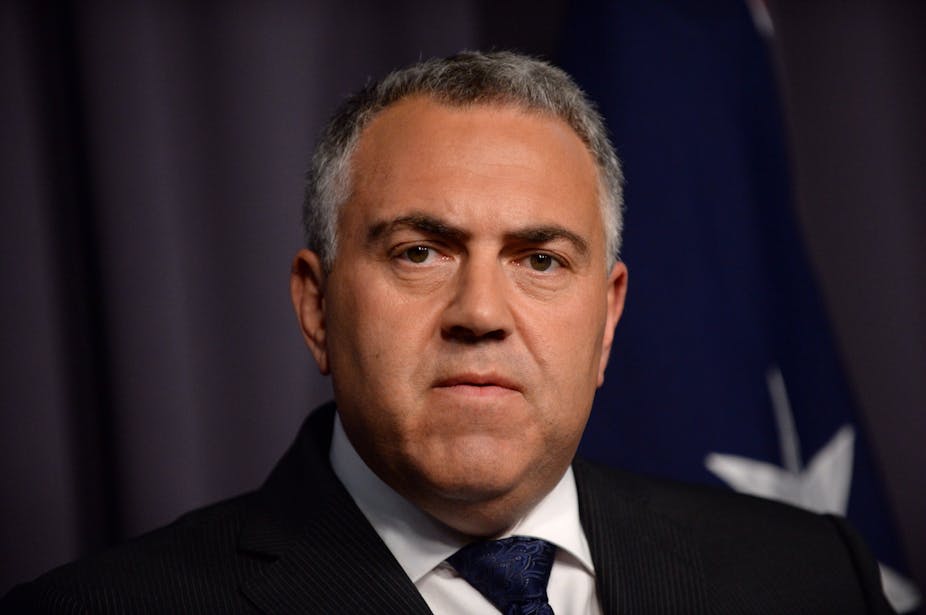The current economic environment, with its “headwinds”, reinforced the importance of getting the budget back into order, Treasurer Joe Hockey has said in a ministerial statement as parliament prepares to wind up for the year.
Speaking a day after the September quarter national accounts showed sluggish annual growth of 2.7%, Hockey said that as the resources investment boom abated, the economy’s transition to more balanced sources of growth would depend on demand for goods and services in other sectors. “That demand will then attract resources to those sectors, drive investment and create jobs,” he told parliament.
“A sustained improvement in public finances is an essential part of those plans.”
Hockey urged Labor, and the Senate, which is presently stopping key budget measures from being implemented, “to take a more mature and collaborative approach to addressing the challenge of budget repair.
"Blanket opposition and mindless resistance is nothing to boast about if you truly care about Australia’s future.”
The government today announced that because of the Senate’s refusal to pass the measure, it has had to put off the planned A$5 rise in co-payment for prescription drugs (80 cents for concessional patients). This was due to start on January 1; failing to implement it will cost $20 million per month.
Hockey said that there were reasons to be optimistic about Australia’s economic growth. Consumers were becoming more confident and showing early signs of being willing to spend more. Businesses were more optimistic about trading conditions, which was a precursor to greater investment and hiring. Job vacancies were at a 20-month high, and export volumes continued to increase.
“Yes, we face many challenges. We are feeling the headwinds of weaker global demand, which has led to the considerable fall in commodity prices. Iron ore represents around one-fifth of our export income and prices have fallen by more than 30% since the budget. We have also seen falls in prices of other major commodities such as thermal coal and wheat.
"Despite these headwinds, the economy will continue to grow and jobs will continue to be created,” Hockey said.
But government revenues had been hit by a larger than anticipated decline in Australia’s terms of trade.
“This means the government will collect less in tax, which makes it harder to pay for existing government services.
"On top of this we have softer wages growth as the labour market adjusts to the transition underway in our economy. This too has a detrimental impact on revenue.
"While these factors have made budget repair harder, they do not alter it necessity.”
Hockey recalled that more than a year ago he had warned that there could even be periods where living standards actually declined.
“The drop in national income recorded in yesterday’s national accounts highlights that this risk is real. All of the government’s actions are being taken with these risks in mind.”
Hockey said that this year “we made great progress in strengthening the Australian economy so that it is better able to cope with external challenges and internal transitions”.
In 2015, the government would support Australia’s productive potential “by investing in infrastructure, improving the efficiency of the federation and the tax and financial systems, and by sustaining our focus on competition and regulation”.
On Sunday the government will release the report from the inquiry into the financial system, chaired by David Murray. The week after next it will put out the mid-year budget update and the process and terms of reference for its inquiry into taxation.

